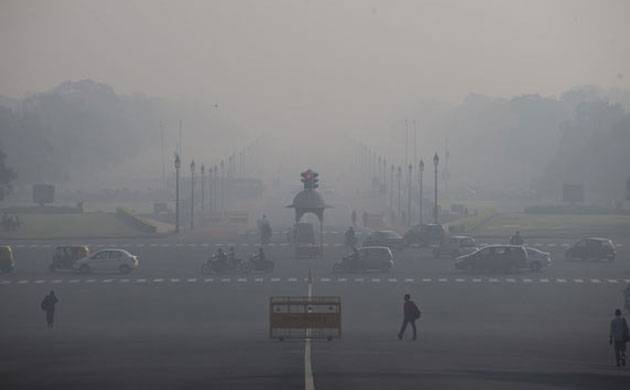
Air pollution linked to 3.2 million new diabetes cases in one year.
A new research study links air pollution with an increased risk of global diabetes, even at pollution levels deemed safe by other governing bodies.
A study from the Washington University School of Medicine in St. Louis collaborated with the Veterans Affairs (VA) St. Louis Health Care System. The findings could impact a global understanding of one of the fastest growing diseases. More than 420 million people are affected by diabetes worldwide, and roughly 30 million people in the United States alone.
Traditionally, the main causes of diabetes are linked to poor diets of unhealthy foods, sedentary lifestyles, and obesity. However, the findings from the Washington University researchers could clue in medical professionals to new reasons behind a rising number of diabetes cases.
“Our research shows a significant link between air pollution and diabetes globally,” said Ziyad Al-Aly, MD, the study’s senior author and an assistant professor of medicine at Washington University. “We found an increased risk, even at low levels of air pollution currently considered safe by the U.S. Environmental Protection Agency (EPA) and the World Health Organization (WHO). This is important because many industry lobbying groups argue that current levels are too stringent and should be relaxed. Evidence shows that current levels are still not sufficiently safe and need to be tightened.”
The findings can be seen in a recent edition of The Lancet Planetary Health.
For years, there has been a lot of research that links diabetes to pollution, but this study is the first time researchers have successfully quantified the extent to which the two global issues are related.
“Over the past two decades, there have been bits of research about diabetes and pollution,” Al-Aly said. “We wanted to thread together the pieces for a broader, more solid understanding.”
In order to further evaluate just how much of an impact air pollution had, the team looked at the particulate matter and correlated those percentages to its impact on the body. Previous research from other teams showed how particles can enter the lungs and bloodstream, thus affecting how major organs function. Particulate matter has even been linked to heart disease, stroke, cancer, and kidney diseases. The Washington University team wanted to see how it could be linked to reducing insulin production and triggering inflammation in the body. This would prevent someone from converting blood glucose into energy and thus make them more likely to suffer from diabetes.
In total, the team estimated that pollution alone contributes to some 3.2 million new cases in diabetes in 2016. They also estimated another 8.2 million years of life were lost in 2016 because of pollution. (Years of healthy life lost is often referred to as “disability-adjusted life years,” according to the researchers.)
“The team in St. Louis [Veterans Affairs and Washington University team] is doing important research to firm up links between pollution and health conditions such as diabetes,” said commission member Philip J. Landrigan, MD, a pediatrician and epidemiologist who is the dean for global health at Mount Sinai School of Medicine in New York and chair of its Department of Preventive Medicine. “I believe their research will have a significant global impact.”













